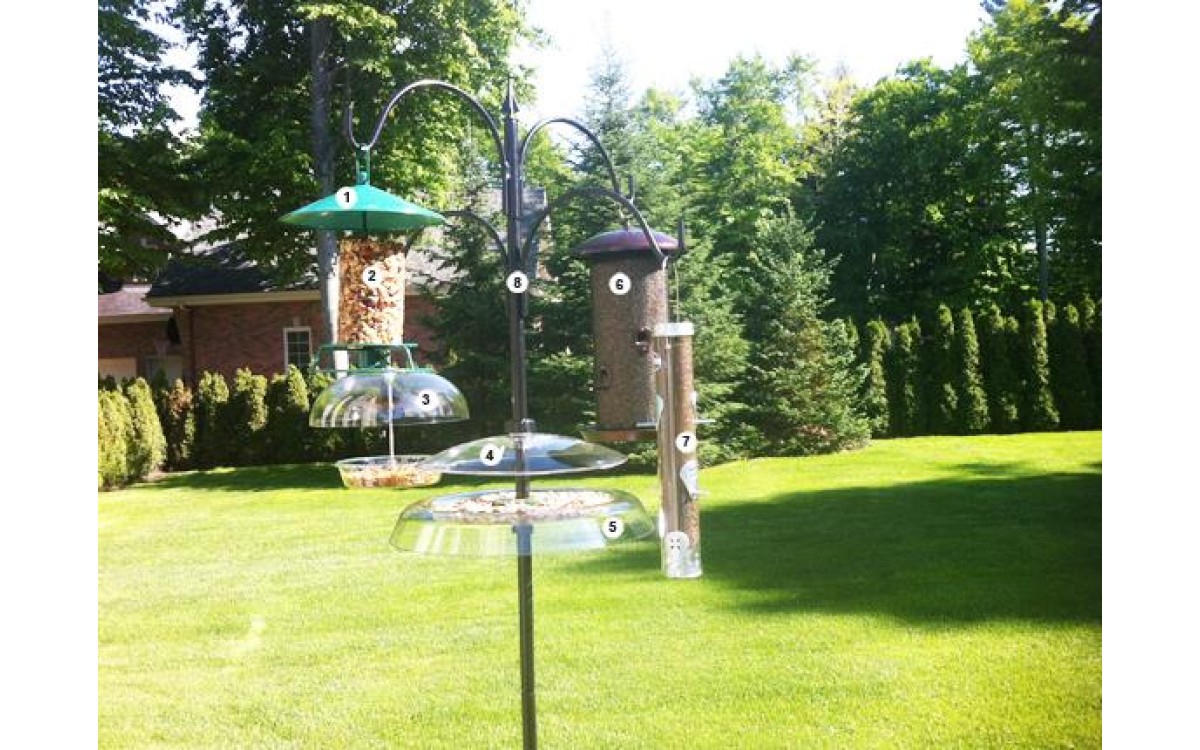Have you ever wondered if a simple hobby could improve your health, sharpen your mind, and bring more joy to your daily life? In Québec and across Canada, birdwatching is much more than a pastime—it’s a powerful way to reconnect with nature while boosting your mental, physical, and emotional well-being.
Whether you’re walking Montréal’s parks, exploring forest trails, or simply watching your backyard feeders, birdwatching invites you to slow down, listen, and rediscover the beauty of the moment.
A Perfect Way to Reconnect with Nature
Birdwatching regularly takes you outdoors, across a rich variety of habitats: forests, fields, wetlands, coastlines, mountains, ponds. It’s the perfect opportunity to walk, cycle, or paddle while discovering the feathered life around you.
Numerous studies have shown that time spent in nature (compared to indoor activities) boosts energy levels, reduces mental fatigue, and eases emotional tension such as anger or confusion. You’ll return from a birdwatching outing recharged, calmer, and more optimistic.
Mental Health & Wellness: Nature’s Therapeutic Power
Research from the David Suzuki Foundation highlights how regular contact with nature can reduce stress, anxiety, and symptoms of depression, while also improving energy levels, immune function, and vitamin D production, and enhancing focus.
This connection to nature is so vital that the absence of it is now known as "nature-deficit disorder." Coined by Richard Louv in his book Last Child in the Woods (2005), the term emphasizes the need for children to spend more unstructured time outdoors. Louv later expanded the idea to adults in his book The Nature Principle.
A Fun, Educational Family Activity
Birdwatching is an ideal multigenerational activity. It aligns perfectly with Canada’s physical activity guidelines. Even the youngest children can join a walk in the woods, while older can handle the binoculars and identification guides — or challenge adults to spot a new species.
A Sensory and Educational Practice
Birdwatching is a conscious act of looking and listening. Unlike most mammals or insects, birds are highly vocal. Tuning your ears to their songs becomes a fun and rewarding skill. This activity:
- Enhances visual and auditory awareness
- Increases concentration and patience
- Improves scientific literacy and vocabulary
According to fledgingbirders.org, the mental benefits include improved communication skills, better impulse control, higher self-confidence, and richer multisensory learning.
A Great Workout for Your Brain
Learning to identify birds by sight, sound, or behavior is a true mental challenge. Beginners benefit from exercising their memory and curiosity, while experienced birders still discover new species, songs, and behavioral patterns regularly.
Studies show that this kind of mental stimulation creates new neural connections and helps prevent neurodegenerative diseases such as Alzheimer’s or Parkinson’s. Birdwatching is, therefore, a powerful and enjoyable way to keep your brain healthy.
Relaxing Yet Energizing
Even watching birds through your window can be calming and satisfying. But eventually, birds will tempt you to head outside, breathing in fresh air, moving your body, and soaking up the sun.
Just 30 minutes of sunlight can provide nearly all of your daily vitamin D needs, which is key to mood regulation, bone health, and immunity. And deeper breaths from outdoor activity mean better oxygen flow to the brain, improving alertness and emotional balance.
A Path to New Friendships and Social Bonds
Birdwatching brings people together. It bridges generations, cultures, and socioeconomic backgrounds. Whether through group outings, birding clubs, or online forums, you’ll find a welcoming and passionate community.
Introducing friends and family to birdwatching also promotes wildlife conservation. Public engagement is vital for the protection of endangered species and the preservation of habitats.
A Natural Motivation to Get Moving
Birdwatching can be as relaxing as sitting on your porch and watching your feeders, but it can also be quite active. Whether you're hiking in a park, trekking through the forest, or maintaining winter feeding stations, it keeps you physically engaged.
The search for rare or elusive species can lead to longer hikes, carrying equipment (binoculars, tripods, cameras), or paddling across lakes. It’s a form of purpose-driven exercise that doesn’t feel like a chore.
Beauty, Variety, and the Unexpected
With their brilliant colors, enchanting songs, and fascinating behaviors, birds offer an ever-changing show. Two birding outings are never the same. Sometimes the species you hoped to see are nowhere in sight and suddenly, a rare visitor appears. This blend of the predictable and the surprising keeps your curiosity alive and your senses alert.
Birds are often a gateway to broader curiosity. While outdoors, you may notice a stunning butterfly, a strange mushroom, or an unfamiliar turtle. Your awareness expands, your world deepens — and with over a million animal species out there, these unexpected discoveries make life more vibrant and meaningful.
Summary: Physical & Mental Benefits of Birdwatching
According to fledgingbirders.org, birdwatching:
- Improves visual and auditory observation skills
- Enhances focus and concentration
- Builds communication and social skills
- Helps with impulse control and emotional regulation
- Boosts self-esteem and confidence
- Promotes relaxation and stress relief
- Encourages peer socialization
- Supports multidisciplinary learning.
In Conclusion: Step Outside and Set Your Sights on the Sky
Birdwatching is affordable, fulfilling, educational, surprising, and healing. Whether alone, with family, or among friends, each outing reconnects you with the natural world, stimulates your mind, and soothes your spirit.
So don’t hesitate: grab your binoculars, a field guide, and let the birds lead you outdoors. Your body, your brain, and your soul will thank you.







-228x228.jpg)